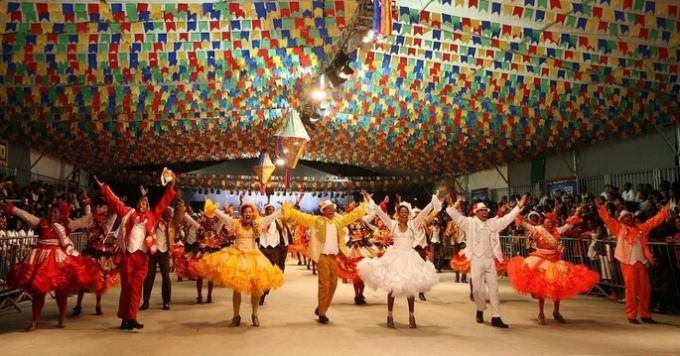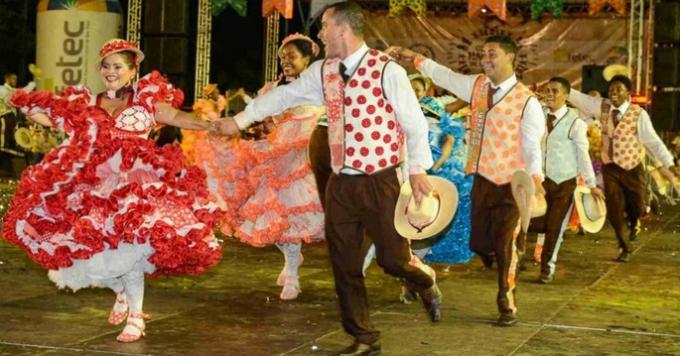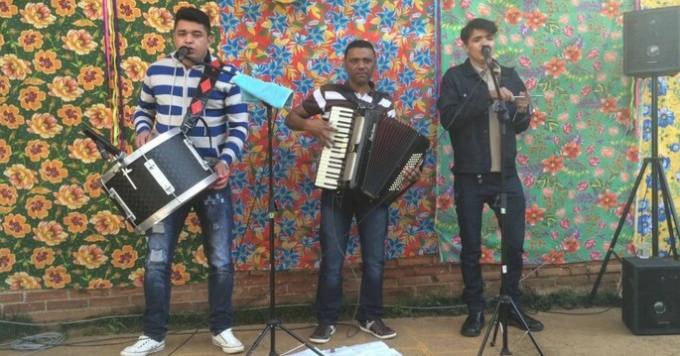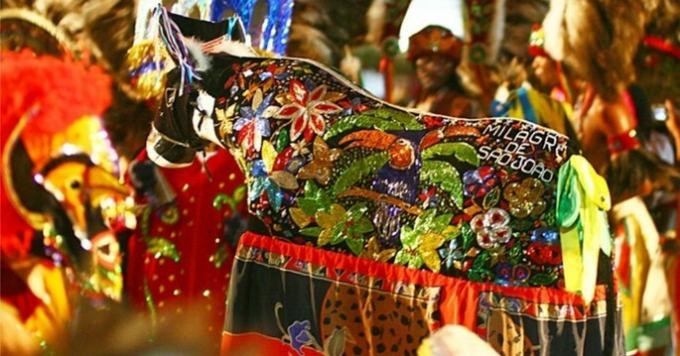The gang, also called junina square, redneck gang or matte gang, is a style of collective folk dance very popular in Brazil.
This rustic dance is typical of June festivals, which usually take place in June and July in all regions of the country.
As it is a rustic dance, its language is close to the colloquial one and the sertanejo and northeastern means.

gang origin
The gang originated in England in the 13th century. Later, it was incorporated and adapted to French culture and developed in ballroom dancing from the 18th century onwards.
Thus, the gang became popular among members of the European nobility. With its spread in Europe, the gang reached Portugal.
From the nineteenth century, dance became popular in Brazil under the influence of the Portuguese court, being very well received by the nobility in Rio de Janeiro, then seat of the Court.
Although it was a dance of aristocratic circles, later the square conquered the people and took on a new and more popular meaning.
In this way, it became popular in rural areas as a celebration to thank the harvest and also to honor the popular saints, São João, Santo Antônio and São Pedro.
Main characteristics of the gang
Get to know the main elements that represent the gang's characteristics.
1. dance in pairs
The quadrilha is one of the most popular June dances in Brazil.
It is a collective dance performed in pairs, and which has a specific choreography based on traditional steps.

A speaker, also called a highlighter or cheery, proclaims fun phrases that determine the dance moves. It may or may not be part of the choreography.
Some popular phrases uttered by the square dance narrator are:
- Look at the snake! It's a lie!
- Look at the rain! It's gone!
- The bridge broke! New bridge!
- The path to the farm.
In every traditional square there are two important characters: the groom and the bride. The dance itself represents the realization of the wedding party. This tradition aims to honor Saint Antônio, the matchmaker saint.
In addition to the bride and groom, other traditional characters are part of the gang's script: the priest, the bride's father, the judge and the delegate.
gang steps
In the narrated choreography, the following square steps stand out.
- Compliments
- balance
- walk through the countryside
- Tunnel
- Coronation
- Wedding
- farewell
2. country clothes
The clothes of the traditional Junina square are very colorful and typically rustic.
Men tend to wear plaid shirts, wear straw hats, and sometimes draw mustaches or goatee heads on their faces.

Women, in turn, wear dresses, make-up and usually braid their hair or pigtails.
3. Country music
The style that is most related to square music is rustic instrumental music.
The main instruments that are part of the traditional quadrilha music are the viola, the guitar, the accordion, the triangle and the bass drum.

Currently, styles such as forró and baião have great prominence in June festivals.
Curiosities about the gang
- The name gang originates from the French word quadrille.
- THE quadrille it emerged in Paris, France, and was a dance made up of four couples.
- There are those who say that the reenactment of the wedding in square dance is a social criticism of traditional families: the bride appears pregnant and her father forces the groom to get married. For this reason, the attempted escape of the groom, who is usually inebriated, is part of the dance.
- One of the biggest square dance contests is held in Campina Grande, Paraíba.
gang contests
The main square dance competitions held in Brazil are:
- National Contest of Juninas Quads
- Contest of juninas squares from Paraíba
- Globo's Juninas Festival
- Contest of June square dances from Recife
- Northeastern Brazilian square dance festival
- Forró & Folia square dance competition
- State of Pará Quadrilha Contest
- Contest of juninas squares from Bahia
gang groups
Check out a selection with some of the main gang groups in Brazil.
- Arraiá da Serra (Rio Grande do Norte)
- Arraiá da Claridade (Rio Grande do Norte)
- Traditional Arraiá Zé Matuto (Rio Grande do Norte)
- Tighten the knot (Brasilia)
- Brazil Caboclo (Paraíba)
- Chapadão do Corisco (Piauí)
- Dona Matuta (Pernambuco)
- Eita Junino (Roraima)
- Star Blast (Piauí)
- Dry Lake (Paraíba)
- Moonlight of São João (Piauí)
- Lumiar (Pernambuco)
- Shameless Moleka (Paraíba)
- White Concertina (Paraíba)
- Santa Fe (Alagoas)
- Traquejo (Pernambuco)
- Tradition (Pernambuco)
Read too: June parties and June games.



